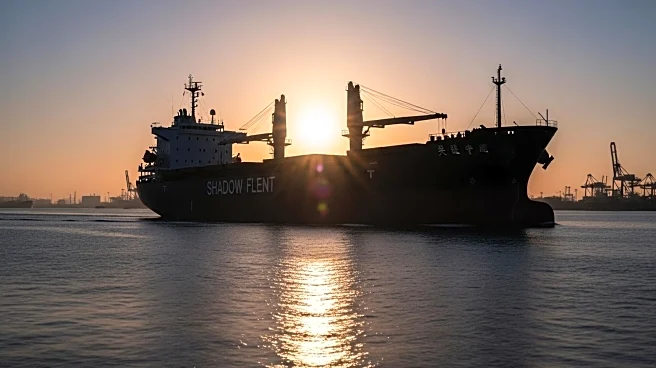What's Happening?
Terminal operators at Huangdao Port in Shandong province, China, are set to introduce measures banning shadow fleet vessels and restricting visits by older tankers. Starting November 1, vessels using fake IMO numbers and ships over 31 years old will be prohibited, targeting the shadow fleet transporting oil under Western sanctions. This decision follows the U.S. designation of a nearby oil terminal as receiving Iranian oil under sanctions. The measures are seen as precautionary steps driven by environmental concerns and U.S. sanctions pressure, although the latter is not explicitly mentioned.
Why It's Important?
The ban on shadow fleet vessels at Huangdao Port highlights China's response to international sanctions and environmental concerns. As the largest entry point for Iranian oil, the port's decision could impact global oil trade dynamics, particularly affecting traders dealing with sanctioned oil. The move may also influence China's diplomatic relations with Western countries, as it navigates compliance with international regulations while maintaining its oil transactions with Iran. The decision reflects broader trends in maritime regulation and environmental protection, potentially setting a precedent for other ports.
What's Next?
The implementation of these measures may lead to increased scrutiny of vessels entering Chinese ports, potentially affecting global oil supply chains. Traders and shipping companies may need to adjust their operations to comply with the new regulations, possibly seeking alternative routes or vessels. The decision could prompt further diplomatic discussions between China and Western countries regarding sanctions and environmental policies. Additionally, other ports may consider similar measures, influencing global maritime practices.










